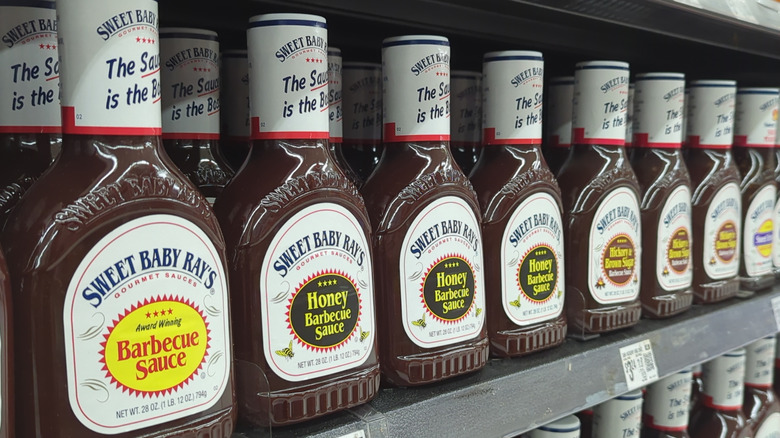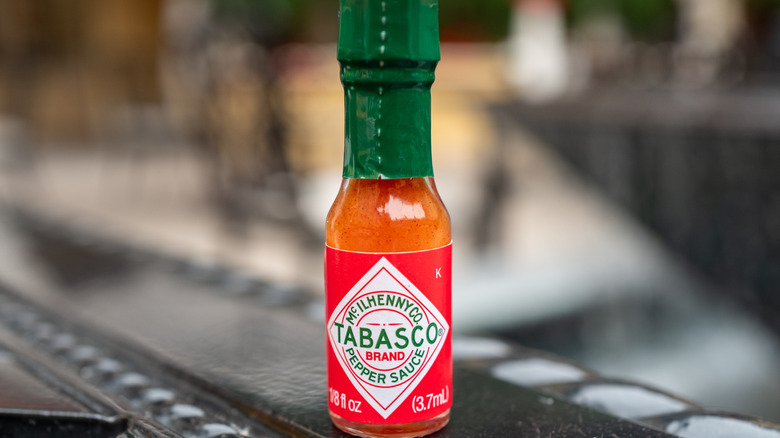Sweet Baby Ray's Started Off With Another Store-Bought Sauce Hidden Inside
In 1985, Chicago brothers Larry and Dave Raymond entered a contest with an original barbecue sauce recipe. But it wasn't just any contest; it was one of the largest rib cooking contests in the U.S.A., called the Mike Royko Rib Fest. The Raymond brothers' barbecue sauce came in second out of 700 entrants — a rare accomplishment for an unknown entrant — and they decided to take the product to the market.
If you've ever had a taste of Sweet Baby Ray's BBQ sauce, you probably never went back to another brand. There's something amazingly sweet, tangy, rich, and smoky about it that, for some, becomes an obsession. Compared to other popular store-bought barbecue sauce brands, Sweet Baby Ray's has a comforting flavor with just a little kick. The formula has changed over the years, but in its early days, it was made with a store-bought sauce mixed into it: Tabasco.
Sweet Baby Ray's original recipe contained Tabasco
Although it's no longer listed in its ingredients, the original version of Sweet Baby Ray's barbecue sauce had a dash of Tabasco sauce in it. The vinegar in the Tabasco added a bit of acidity, and its peppers gave just a touch of heat. (On the Scoville scale, it's a relatively mild heat, but still gives a nice kick.)
Co-founder Dave Raymond once told the Chicago Tribune, "It is a unique blend of sweet, hot, and smoke designed to complement food flavor and not dominate it. Used straight from the fridge it is spicier, but milder when heated." The original, contest-winning heat in the sauce came from the Tabasco. At the time, Raymond believed it was superior to what other brands were doing with their sauces, using bell peppers, curries, or cayenne as cheaper ways to try to get heat.
More than 30 years after Sweet Baby Ray's made its name at a rib cookoff, the company has expanded its product line to meet the needs and taste buds of its customers. It now comes in a variety of creative flavors, some of which are hot sauces, kosher sauces, and gluten-free. It's unclear when the recipe changed to take out the Tabasco sauce from the original version, but it could have been when the company was sold in 2003 — for over a whopping $30 million dollars.

